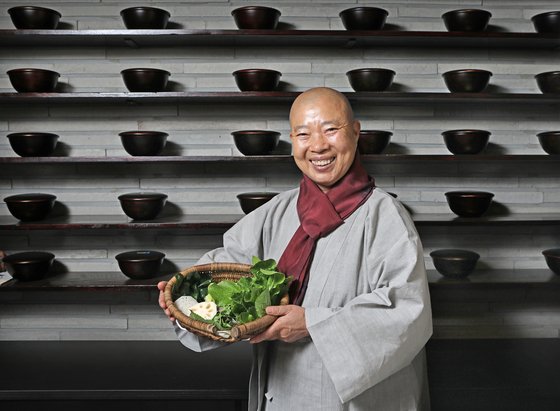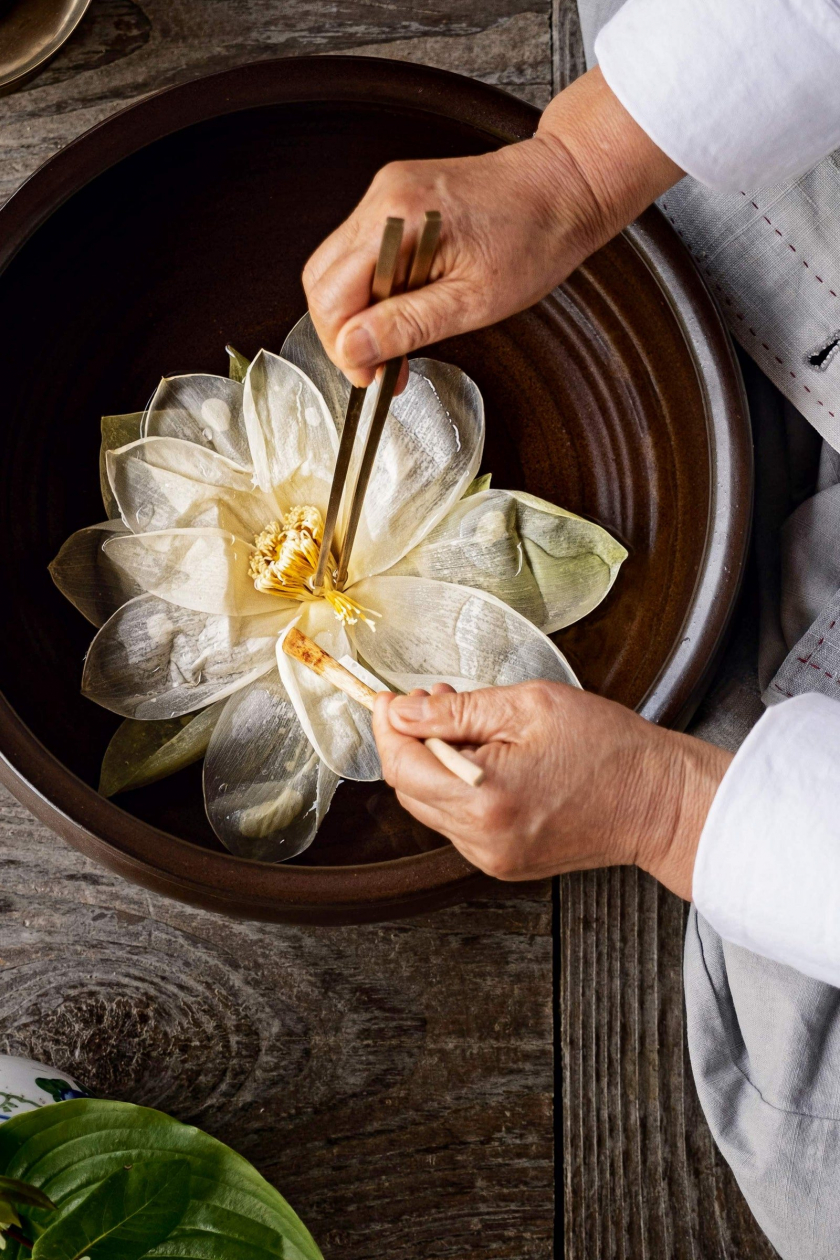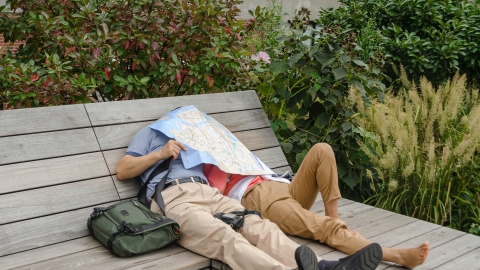From October 15th to 31st, 2022, Sofitel Legend Metropole Hanoi will host Korean Food Week, offering diners a culinary experience that embraces nature, created by "philosopher chef" Jeong Kwan – a renowned nun/vegetarian chef honored with the Icon Award Asia, listed among Asia's 50 Best Restaurants, and a Netflix star in the Chef's Table series.

Chef Jeong Kwan's menu is inspired by meditative cuisine, utilizing principles of Buddhism.
The Korean Food Week will open from 11 am to 2 pm on Saturday, October 15th. This is the third time Metropole Hanoi has organized the Korean Food Week, lasting two weeks and featuring à la carte menus and 5-course set menus for lunch and dinner at Le Club Bar, alongside Korean products available for purchase at L'Epicerie du Metropole.
Chef Jeong Kwan's menu is inspired by meditative cuisine, utilizing Buddhist principles and the finest ingredients from South Korea.
The menu for the food week includes: black sesame porridge (black sesame porridge with pickled tomatoes simmered in oil), paprika stuffed tofu and shiitake mushrooms (tofu stuffed inside a bell pepper cooked with shiitake mushrooms and traditional Korean rice syrup), Jang Ddeok and persimmon salad (traditional Korean pancakes with Gochujang and Doenjang chili paste, dried persimmons, and sweet sauce), Namul mixed rice (with three types of mountain herbs, Jeong Kwan's secret Pakpakjang sauce, sweet and sour pickled vegetables, and mushrooms), and Korean milk grapes simmered in tomato syrup (served with seaweed and crispy fried potato slices).

Jeong Kwan's profound culinary philosophy stems from applying the cyclical nature of body, mind, and nature.
"When I think about cooking, I usually empty my mind first to understand the essence of the ingredients and share my mind with nature," chef Jeong Kwan shared.
Most of Jeong Kwan's recipes utilize typical Korean plants and herbs. She avoids garlic and onions (ingredients widely believed by Buddhists to be detrimental to spiritual cultivation) in her cooking, adhering to vegan and meditative principles.
Jeong Kwan has never worked in a restaurant or undergone any formal culinary training. Her profound culinary philosophy stems from applying the cyclical nature of body, mind, and nature. She advocates Korean temple cuisine with a fundamental and core principle: cooking is not only for nourishing the body but also for achieving enlightenment.
When Eric Ripert, a French culinary expert, visited Baekyangsa, the 7th-century temple in Naejangsan National Park that Chef Jeong Kwan calls "home," he called her "Philosopher Chef" and praised Chef Jeong Kwan's cuisine as "the most exquisite food in the world."

 VI
VI EN
EN

































